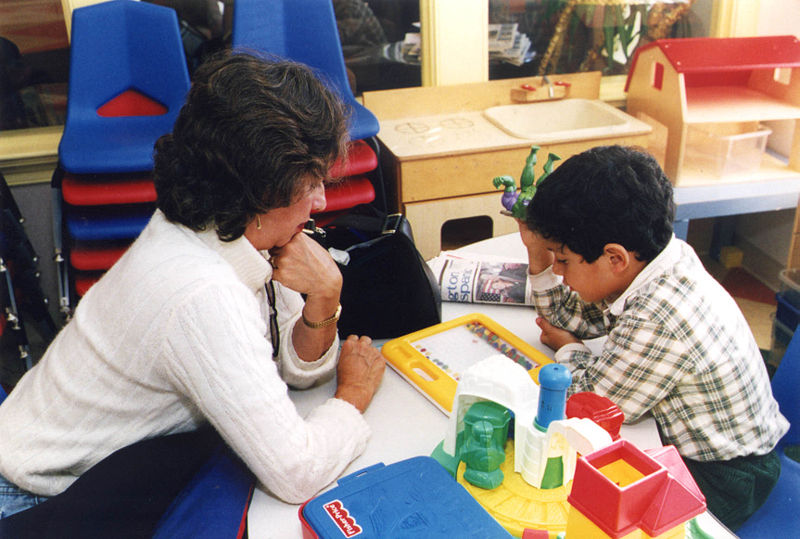Universal tastes and the importance of cliche
Friends of mine know that I tend to have pretty "interesting" taste in music. Which, among this crowd, means I enjoy a lot of tasteless music. These are people who would rather die than be caught with a Madonna cd on their shelf. Or Foreigner, or Sara McLaughlin, or Iron Maiden, for that matter. Which brings me to Coldplay.
But let us begin with cold cuts.
Anthony Bordain, travel channel food critic, is known for his appreciation of both the high and the low in culinary arts. He seems to have an especial affinity for heaping piles of greasy meat. Not exactly Michelin-approved fare. But, as he might put it, the food is authentic, i.e. something created by ordinary people - not for mass consumption but whomever turns up at their particular bodega counter. Now, this is actually a quite high-minded, multi-cultural and humanist recognition of the social and cultural nature of cuisine. Bordain is not simply eating a spicy pile of goose thighs, but ingesting the dynamic interplay of the people of San Pablopalooka - their parents, grandparents, and relative's gastronomic peculiarity.
Fine. But it isn't as if his palate is consumed by sociology. He turns his nose up plenty, notably iguana ("tastes like pond scum"), and coal-fried eggs ("bits of charcoal in my teeth"). And when he does find something he likes, his praisings are confined to the actual entree, which he devours with considerable bacchanalian relish. At the end of the day, he is still human, his salivary glands activated not nearly as much by anthropological charms as the biomechanics of taste receptors in his mouth and nose. Food must largely be reduced to, well, food: it lives or dies by the particular dynamics of fat, salt, sweet, etc. that it signals in the the pleasure centers of the brain.
I listen to music in my head. Quite literally, I mean, most of my music appreciation these days takes place between a set of headphones. And while I've seen a good number of musical performances, enjoyed an album spun by a friend round his record player, and sung along to the stereo with a carload of travelers. But my deepest experiences of music have generally come without distraction. Even in social settings, my most transcendent experiences have been spent in a reverent solitude, mediated by the power of music to transport me away from the physical realm and into a quasi-religious state of pure emotional absorption.
Many people are not as enthralled with music as am I. To each his own. I'm honestly not a huge fan of food. Oh, I like it alright. But it's just never been something that affected me so deeply. As I often like to say, on a scale of 1-10, the most sublime pizza might be a 9, but a frozen pizza straight from the oven rates a better than decent 6 or 7. I'm also somewhat of a recluse, so I'm probably not interested either in devouring the cultural context of one or another "great little joint". Food, for me, can indeed be reduced down to an awfully base, biomechanical level. I wouldn't quite call myself indiscriminate, but maybe more semi-discriminate.
Mouth. Open. Food. Enter. Yum.
But let us return to music, where things will get much more complicated. Not only am I a passionate music listener, and devoted entrepreneur of new musical experiences, but a musician as well. Given my reclusive, anti-social tendencies neither has my music production been social. Few have ever heard what I have made musically, but it has nonetheless been rather copious. I have written and recorded four indie-rock oriented, full-length albums, as well as one pseudonymous rap album (if a bear has a pseudonym in the woods, is it really a pseudonym?). I absolutely love music.
And I am discriminate. There is much I desperately do not like. Most music, probably. Whole genres of music are uninteresting to me. Bluegrass is certainly pleasant, but I get more stimulated watching cats sleep. "World music"? What does that even mean. I think most Arabs these days listen to technopop.
No, give me originality. Give me passion and challenge. Give me darkness and experimentation. Let Death Metal transport me to roiling seas of demons and rusted caves. Let reverb and pedal effects wash over syncopated drum and drone of bass and snare. Let plaintive, obscure lyrics launch existential projectiles over Elysian fields of gentle acoustic minority.
Everyone likes television. Everyone likes porn. They won't admit it. These things have all sorts of political connotations. Everyone, too, likes french fries and greasy meat. Even from McDonalds. Even Anthony Bordain.
Everyone likes resolving chord progressions. Everyone likes harmonic dynamics. Everyone likes a beat. Everyone likes a pattern. Everyone likes a well-written pop song, because they start with these things. They are popular, because they
end with them. Pop songs are by their nature unchallenging. They do little that is very new. They take what has been done before, rework it, repackage it - maybe with different instruments, different singers, and different emphasis on different aesthetic elements. But in the end, there is more that Britney Spears and Fugazi have in common than not. Short, cyclical, rhythmic, dynamic pop songs. Its just that Fugazi sings about masturbation as a metaphor for social discomfort, and Britney Spears sings about her ass. Repeater, meet Hit me Baby One More Time. Their musical choices highlight these priorities.
And so this gets political, as a difference in values arises. Britney Spears gets airplay worldwide, with media marketing blitzes and corporate payola. She is the epitome of the mass-market, corporatization of art, focus-grouped and merchandized within an inch of its life. Fugazi listeners are after the antithesis of this. They are the artistic equivalent of off-the-grid, hippie communalists, living their principles and giving the finger to all that has been cynically processed and delivered unto them in a attempt to spoon feed an habitually lazy lifestyle of uncritical consumption. What underlies their appreciation of Fugazi is not merely its aesthetic charms, but what it represents. Much as Bordain glorifies the meta-cognitive experience of "authenticity", so too do the anti-consumerist music fans glorify their music as free from the chains not of fast-food, but what you might call "fast music".
I get this. Not only am I sympathetic, but I engage in it myself. I'll even go so far as mark my aversion to corporate music as part of my identity, both as a self-image, but as a social signal. My music in some ways represents my politics. It also represents my socio-economic status as one who
knows better. My cultural/political critique reflects as well my lifelong grooming as a member of somewhat good standing among the cognoscenti ,
a person with superior, usually specialized knowledge or highly refined taste, from the Greek Gnosis, or knowing. In the circles I have been raised to travel, knowledge for knowledge sake is one of the highest values. As such, my ability to think critically - and digest subsequently knowledgeable indulgences - is a primary status indicator. Fugazi is therefore an expression of individual, enlightened and cognitive discrimination, as opposed to populist, unenlightened, uncritical nondiscrimination.
Yet here we run into what I call the cheeseburger problem. There is all that meta, analytical stuff. But then there is the awesomeness that is the cheeseburger. There is the cocaine-like drip of grease over one's lip. Might we find a rhyme, in the cocaine-like dip of the hip? As I write this paragraph, I'm listening to a duet between Coldplay's Chris Martin and Rihanna. It takes discipline to not want to move my hip. Very un-PC.
Coldplay is an interesting band. A decade a go they shot onto the mainstream charts with Martin cooing about everything being yellow. It was noticeable for its sly derivativity. Apparently Martin himself called his bands music "limestone rock" as opposed, I imagine from "hard rock". A respectably honest self-assessment. An amalgam the bubble-gummiest bits of U2 and Radiohead, they are romance more than angst. Pushing the envelope only ever so slightly, they certainly aren't afraid of staying within the lines. And yet it cannot be said that when it comes to hooks - those oh so important and yet so hard to quantify and explain secret spices of pop sauce - they are experts. No doubt hidden producers lurk like digital svengalis, refining and orchestrating whatever magic the band originates naturally and spinning it into even more sumptuous and digestible gold. Maybe more than any other rock band in recent history, Coldplay are the perfect pairing of organic, "authentic" artistry and corporate discrimination.
Modern food corporations pay flavor factories to give their products perfect appeal. Essences are scientifically extracted and mixed into precise morsels of consumptive bliss. Glutamates and sodiums fold together into sensory bombs designed to flood the brain with oxytocin. The same can be said for popular music. To the extent that many strive for authenticity, much of the formula has already been accepted and internalized. Fugazi is popular music, wrapped as it is in respectable and impassioned political statement. The envelope is pushed, further indeed than Britney Spears, further too than Coldplay. But it remains largely intact. In a strange irony, to the extent that Fugazi's music represents the politics of authenticity, it gathers strength from the very brain bio-mechanics of musical pleasure that it finds co-opted by the creative hegemony of corporate music. Fewer hooks, fewer patterns, fewer resolving chord progressions and Fugazi leaves the envelope for obscurity.
This tension between radicalism and moderation has always existed. The radical argues for total purity at the cost of pragmatism, the moderate makes pragmatic concessions to acquire less corruption. The hippie communalist who goes off the grid gives up the prospect of influencing the larger culture, carving out instead his own individual victory. Maybe this is has its own unique power, gaining larger change in less direct ways. Fugazi fans will never hear their music on the radio, but many corporate bands will have been influenced by Fugazi's values.
I might be described as a moderate. Maybe my enjoyment of Journey, Depeche Mode, the Smashing Pumpkins and Coldplay represents a moderation. So too my enjoyment of frozen pizza. But maybe my devotion to music runs so deep, my fascination so profound, that I feel compelled to honor every note without the petty intrusion of political, social intrusions. Chris Martin may be kind of a derivative dork, but he means well, and it simply can't be said that his band doesn't consistently produce hook-driven music.
Or maybe, like an addict, as the King of Pop himself Michael Jackson once sang, "I just can't stop loving you."










And this is all highly correlated with family capital. In a 1987 paper , Lareau describes parent night at two schools of different SES make-ups, fictionally named Colton (low -SES) and Prescott (high-SES).(1)
These are all situations in which there is little a teacher can do but work with the student when he or she shows up in class. But that is obviously not enough. How is it then, that we a society, might intervene in a way that secures for the child a proper education?
1 - Social Class Differences in Family-School Relationships: The Importance of Cultural Capital, Author(s): Annette LareauSource: Sociology of Education, Vol. 60, No. 2 (Apr., 1987), pp. 73-85